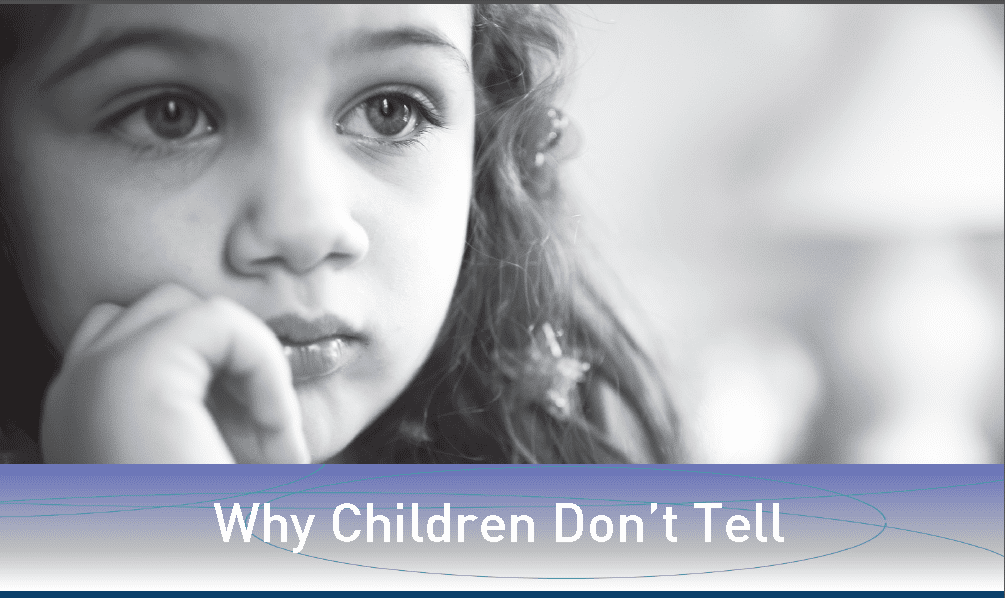
We often hear the question, “Why don’t children tell someone when something bad is happening to them?” and many parents believe, “My child would tell me if someone was abusing them.” Statistics show that 73% of children do not tell anyone about sexual abuse for at least one year. The grooming process is manipulative and designed to keep children silent. Frighteningly, it is also effective.
- Relationship of Child to Abuser – Only 7% of child sexual abuse cases involve abuse by a stranger. It is most likely that the child knows, trusts, and loves his or her abuser.
- Shame and Fear – In many cases, victimized children blame themselves for sexual abuse. This is often encouraged by abusers, who may tell the children that they are at fault or that no one will believe them. Abusers may tell them that it’s a “secret,” and threaten to harm the child or their loved ones if the secret is told.
- Erosion of Boundaries – Sexual abuse is generally a process rather than an immediate action. Abusers build relationships with children and their families. They challenge boundaries with hugs, swats, rubs, and pats can be made to look like innocent actions. By the time sexual abuse occurs, the child is dependent on and emotionally controlled by the abuser, confused as to what behavior is acceptable and whether boundaries have been crossed.
- Adults don’t ask. It is imperative to encourage children to discuss things that make them feel uncomfortable, to talk about secrets, and to help them understand safe and unsafe touching. If your child or a child in your care does disclose abuse, listen. False reporting is rare, between 2 and 10 percent. Believe the child and get them help.
For more information on keeping kids safe,
call (701) 323-5626.
This post was recently published in the Dakota Catholic Action. View the original article.
